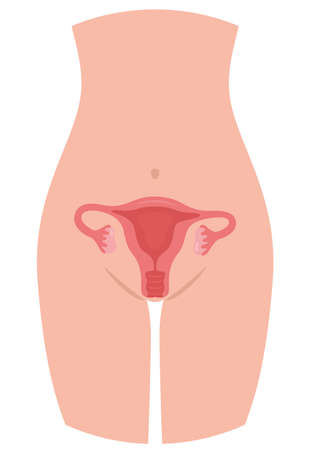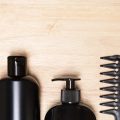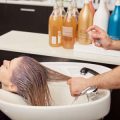1. Understanding Hormonal Changes and Hair Growth During Pregnancy
During pregnancy, your body goes through a lot of changes, and one of the most noticeable might be how your hair starts behaving. Thanks to shifting hormone levels—especially increased estrogen and androgen—many women experience changes in their hair growth patterns. You might find that your body hair grows faster, thicker, or in new places where you’ve never noticed it before. This is totally normal and usually temporary.
So, why does this happen? The main reason is the surge in pregnancy hormones. These hormones are essential for supporting your baby’s development, but they also affect other parts of your body—including your hair follicles.
How Pregnancy Hormones Affect Hair Growth
| Hormone | Effect on Hair |
|---|---|
| Estrogen | Prolongs the hair growth phase, which can make scalp hair appear fuller and healthier. |
| Androgens (like testosterone) | Can cause increased body and facial hair growth, sometimes in unexpected areas like the stomach, face, or back. |
This change can be surprising, especially if youre used to having minimal body hair. Some moms-to-be even notice darker or coarser hairs appearing on their belly or face. While it might feel uncomfortable or unfamiliar, these changes usually fade after childbirth as hormone levels return to normal.
Is It Permanent?
Nope! In most cases, the excess hair sheds naturally within six months postpartum. So while you may want to manage unwanted hair during pregnancy, keep in mind that these changes are temporary.
2. Safe At-Home Hair Removal Methods for Expecting Moms
When youre pregnant, your body goes through all sorts of changes—including increased hair growth due to hormonal shifts. While its totally normal, you might still want to keep up with your regular hair removal routine. The good news? There are several at-home methods that are considered safe during pregnancy. Heres a breakdown of the best options and how to use them safely and comfortably.
Shaving
Is it safe? Yes! Shaving is one of the safest and most accessible hair removal methods during pregnancy. Since it only removes hair at the surface, theres no risk of chemicals being absorbed into your skin.
Tips for Safe and Comfortable Shaving:
- Use a sharp, clean razor: This helps prevent nicks and cuts.
- Shave in the shower or after a warm bath: Warm water softens the hair and opens up pores.
- Apply a gentle shaving cream or gel: Choose fragrance-free options to avoid irritation.
- Take your time: As your belly grows, you might have trouble seeing certain areas. Use a mirror or ask for help if needed.
Trimming
Is it safe? Absolutely. Trimming doesnt involve skin contact with sharp blades or chemicals, making it an easy go-to option for grooming during pregnancy.
Tips for Safe Trimming:
- Use electric trimmers or safety scissors: These offer better control and reduce the risk of cuts.
- Trim in a well-lit area: Visibility is key to avoiding accidents.
- Sit down while trimming: Helps with balance, especially as your center of gravity shifts.
Sugaring
Is it safe? Yes—sugaring is generally considered safer than traditional waxing because its made from natural ingredients like sugar, lemon juice, and water. It also adheres more to hair than skin, which may reduce discomfort and skin irritation.
Tips for Safe Sugaring at Home:
- Do a patch test first: Even though its natural, always check for allergic reactions before applying widely.
- Avoid overheating the sugar paste: Lukewarm paste reduces risk of burns.
- Avoid sensitive areas in later trimesters: As your skin becomes more sensitive, consider switching to gentler methods for bikini or underarm areas.
Quick Comparison of Pregnancy-Safe Hair Removal Methods
| Method | Safe During Pregnancy? | Pros | Cons |
|---|---|---|---|
| Shaving | Yes | Quick, inexpensive, widely available | Risk of cuts; hair grows back quickly |
| Trimming | Yes | No skin irritation; easy to control length | Doesnt remove hair completely |
| Sugaring | Yes (with caution) | Natural ingredients; less painful than waxing | Can be messy; requires prep time |
No matter which method you choose, always prioritize comfort and hygiene. If youre ever unsure about a product or technique, dont hesitate to talk to your OB-GYN or dermatologist for personalized advice. Staying informed helps you feel confident and cared for during every stage of your pregnancy journey!
![]()
3. Hair Removal Methods to Avoid While Pregnant
While it’s totally normal to want to keep up with your usual hair removal routine during pregnancy, some at-home methods might not be the safest option for you or your baby right now. Your body is going through a lot of changes—hormonal shifts, increased skin sensitivity, and even changes in circulation—so it’s important to know which hair removal techniques could pose risks.
Chemical Depilatories (Hair Removal Creams)
Hair removal creams use strong chemicals like calcium thioglycolate or potassium hydroxide to break down hair so it can be wiped away. However, these chemicals can have strong odors and may irritate sensitive pregnancy skin. Plus, there’s limited research on how much of these substances might be absorbed into your bloodstream and affect your baby. For safety, many healthcare providers recommend avoiding chemical depilatories until after pregnancy.
Waxing Certain Areas
Waxing may seem like a quick solution, but during pregnancy, your skin becomes more sensitive due to increased blood flow and hormonal changes. This makes waxing more painful and increases the risk of:
- Skin irritation or rashes
- Bruising or swelling
- Broken capillaries (especially on the face)
If youre still considering waxing, avoid areas that are already sensitive or swollen, such as your belly or bikini line in later trimesters.
IPL (Intense Pulsed Light) and Laser Hair Removal Devices
At-home IPL devices are popular for long-term hair reduction. However, most dermatologists and OB-GYNs advise against using them during pregnancy. Heres why:
| Reason to Avoid | Details |
|---|---|
| Lack of Safety Data | No conclusive studies prove IPL is safe for pregnant users. |
| Increased Skin Sensitivity | Pigmentation changes and higher sensitivity can lead to burns or discoloration. |
| Ineffective During Pregnancy | Pregnancy hormones may cause new hair growth, making treatments less effective. |
What Experts Recommend
The American College of Obstetricians and Gynecologists (ACOG) doesn’t provide specific guidelines on hair removal during pregnancy, but most doctors suggest choosing gentle methods like shaving or trimming instead. When in doubt, check with your OB-GYN before trying any new product or tool.
A Quick Summary of What to Avoid:
- Chemical Creams: May irritate skin; unknown absorption risk.
- Waxing Sensitive Areas: Higher chance of pain and irritation.
- IPL/Laser Devices: Not proven safe for pregnant users.
Your comfort and safety matter more than ever when youre expecting. Understanding which methods to avoid can help you make smart choices for both you and your baby’s well-being.
4. Skin Sensitivity and Product Ingredients to Watch Out For
During pregnancy, your body goes through a lot of changes — and that includes your skin. Thanks to hormonal shifts, many pregnant women experience increased skin sensitivity. This means products or tools you used before without any issues might now cause redness, itching, or even allergic reactions.
Why Skin Becomes More Sensitive During Pregnancy
Your hormone levels, especially estrogen and progesterone, rise significantly during pregnancy. These changes can make your skin more reactive to certain ingredients and external factors. You may also notice that your skin becomes drier or more prone to breakouts, adding another layer of complexity when choosing hair removal methods.
Common Ingredients to Avoid
Certain chemicals in at-home hair removal products can be too harsh for sensitive pregnancy skin. Always read labels carefully, and if you’re unsure, talk to your healthcare provider before using any new product.
| Ingredient | Why to Avoid It |
|---|---|
| Fragrances (synthetic) | Can cause irritation or allergic reactions on sensitive skin. |
| Sulfates (like SLS) | Harsh cleansing agents that may dry out or irritate the skin. |
| Retinoids (vitamin A derivatives) | Not recommended during pregnancy; can be absorbed into the bloodstream. |
| Salicylic Acid (in high concentrations) | Might be too strong for sensitive skin and is generally advised against during pregnancy in large amounts. |
| Parabens | Pegged as hormone disruptors; some pregnant women choose to avoid them entirely. |
Tools That Might Be Too Harsh
Apart from ingredients, certain tools can irritate pregnancy-sensitive skin. Here’s what to watch out for:
- Epilators: These devices pull hair from the root and can cause more pain and inflammation than usual when your skin is already sensitive.
- Abrasive exfoliating gloves or scrubs: While exfoliation helps prevent ingrown hairs, rough textures can damage delicate skin.
- Hot wax: High temperatures might feel more intense and could lead to burns or irritation more easily than before pregnancy.
Tips for a Safer At-Home Hair Removal Routine
- Patch test everything: Even if you’ve used a product before, always do a small test first during pregnancy.
- Simplify your routine: Stick to gentle, fragrance-free products designed for sensitive skin.
- Avoid experimenting: Now’s not the time to try new tools or trendy ingredients — stick with what’s safe and familiar.
5. When to Consult Your OB-GYN or Dermatologist
While many at-home hair removal methods are generally safe during pregnancy, there are times when it’s best to check in with a healthcare professional. Pregnancy can bring about a lot of changes in your body — including increased hair growth in unexpected places or heightened skin sensitivity. If you’re unsure whether a product or technique is safe for you, don’t hesitate to reach out to your OB-GYN or dermatologist.
Signs It’s Time to Talk to a Professional
If you notice any of the following, it’s a good idea to schedule an appointment:
| Situation | Why You Should Seek Help |
|---|---|
| Unusual or excessive hair growth | This could be a sign of hormonal imbalances like PCOS or other conditions that may need monitoring. |
| Irritation or allergic reactions from products | Your skin may be more reactive during pregnancy. A dermatologist can recommend safer alternatives. |
| You want to try a new product or tool | Certain ingredients (like retinoids or strong chemicals) and devices (like IPL lasers) may not be pregnancy-safe. |
| You have existing skin conditions (eczema, psoriasis) | A specialist can help tailor a hair removal routine that won’t aggravate your condition. |
| You’re unsure if your current method is safe | Your OB-GYN can provide peace of mind and steer you toward safer options. |
Your Healthcare Team Is There for You
Prenatal visits aren’t just for baby check-ups—theyre also a great time to ask about personal care concerns. Don’t feel shy bringing up hair removal; your doctor has likely heard it all before. Whether it’s getting advice on what ingredients to avoid or managing rapid hair growth, your provider can offer guidance tailored specifically to your pregnancy journey.


